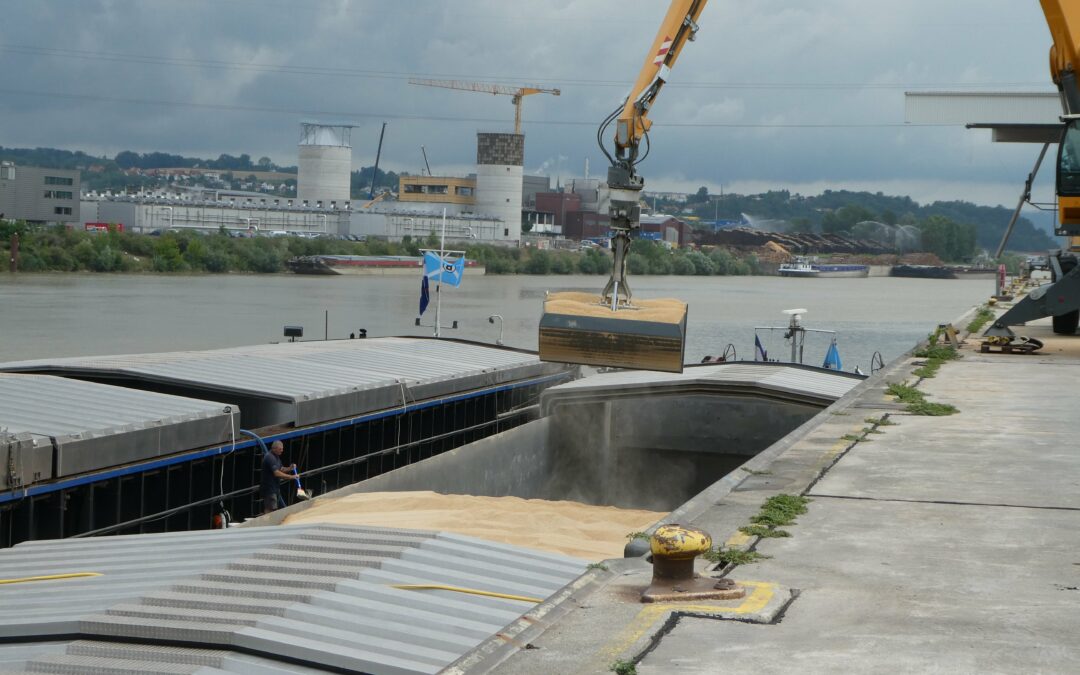The year 2022 brought good conditions for shipping in the first half of the year. Mainly the classic goods, such as animal feed, grain, stones, etc. were handled, although the Ukraine conflict brought a shift in the flow of goods. Shipments from the east decreased significantly, but there was a tendency towards the western ports (Rotterdam, Germany). Following the expiry of a large-volume project business from 2021, it was not possible to match the peak value of the previous year. Water/shore handling in 2022 was 562,000 tons, below the long-term average.
In the second half of the year, restrictions due to low water occurred at times, causing ships to be lightered or some shipments to be shifted to rail. Especially during low water, rail is an important cooperation partner for shipping.
There was increased demand in the high & heavy handling sector. For example, there were shipments of oversized containers for a brewery or of plant components for the aerospace industry. Due to their large dimensions and high weights, heavy and oversized goods can make optimum use of the advantages of Danube navigation.
The infrastructure at the site has been further modernized and the companies located there are clearly on course for growth. First – DDSG opened Austria’s first floating dock, enabling maintenance and repairs to be carried out on its own ships on site. Fixkraft-Futtermittel completed the expansion of its organic blending line, and Donausäge Rumplmayr commissioned its new pellet plant in the fall of 2022 with an investment volume of around 20 million.
The Container Terminal Enns was utilized to a high degree with an annual throughput of 457,500 TEU in 2022. Due to the large availability of storage areas at the terminal, considerable container volumes could be temporarily stored for the economy and shipping companies and retrieved at short notice if required. The high-frequency train services to the seaports were further expanded and even extended to include the relation to the port of Rijeka.
The port infrastructure is becoming increasingly digital. For example, the project for the digital recording of cargo handling data was implemented on the software side and will go into test operation at the beginning of 2023. Through a targeted exchange of information and data, cooperation with the handling companies is to become even more efficient in the future.

